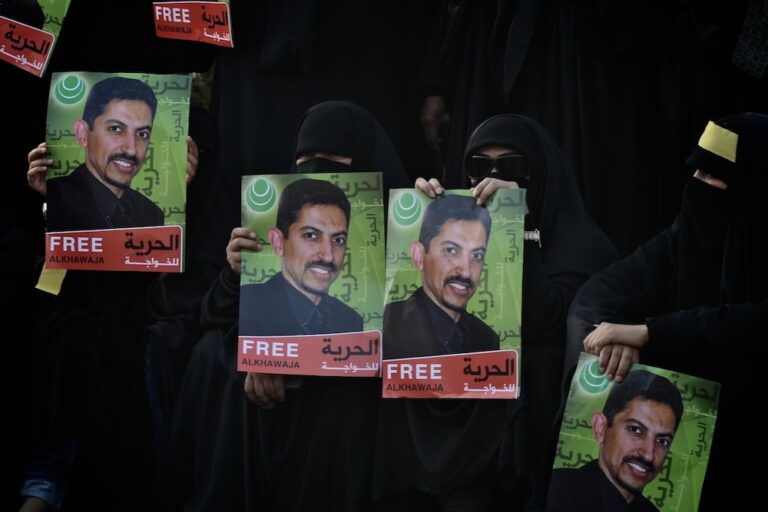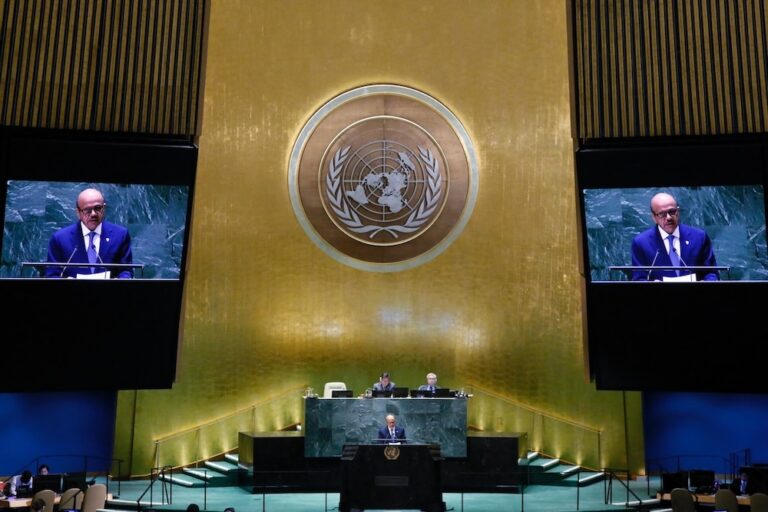(RSF/IFEX) – On 10 May 2002, RSF expressed concern over Bahrain’s refusal to allow the Qatari television station Al-Jazeera to report on the country’s municipal elections. The organisation warned that such a ban would “seriously damage” the country’s image. “We regret that Bahrain is joining the long list of Arab countries that do not tolerate […]
(RSF/IFEX) – On 10 May 2002, RSF expressed concern over Bahrain’s refusal to allow the Qatari television station Al-Jazeera to report on the country’s municipal elections. The organisation warned that such a ban would “seriously damage” the country’s image.
“We regret that Bahrain is joining the long list of Arab countries that do not tolerate the freedom of expression heard on Al-Jazeera’s programmes,” RSF Secretary-General Robert Ménard said in a letter to Information Minister Nabil Yacub el-Hamer. “Any station should be allowed to cover the elections,” he said, noting that Bahrain had developed a “fairly good reputation” to date with regard to press freedom.
In March, the government blocked access to at least five websites, some of which are run by opposition groups, charging that they were “platforms for spreading tendentious news, rumours and lies” (see IFEX alert of 28 March 2002).
On 10 May, the information minister rejected Al-Jazeera’s application to cover the elections, saying the station was “trying to harm Bahrain” and was “infiltrated by Zionists.” The refusal is thought to have been prompted by the station’s unauthorised coverage of demonstrations in the Bahraini capital against the Israeli offensive in the West Bank.


